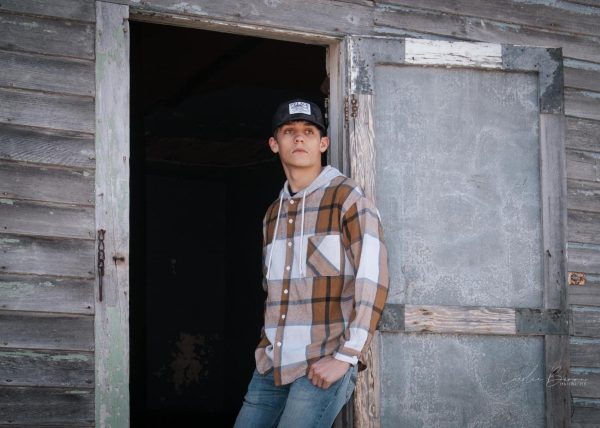University of South Carolina students protest inequalities Monday
November 17, 2015
By Andrew Shain
COLUMBIA, S.C. — A group of about 150 University of South Carolina students walked out of class Monday morning to protest alleged racial and gender inequalities at the state’s flagship college.
Dressed in black, the protesters marched silently two-by-two, locked in arms from the Longstreet Theatre through the Horseshoe to USC’s administration building where they presented a list of 12 demands to three university administrators.
Spokeswomen for the group, known as USC 2020 Vision, said they wanted to know when the university would meet their demands, which include improving and expanding minority student and faculty recruitment efforts.
“The future of USC is in your hands,” said Clarie Randall, a biology/psychology major from Greenville as she handed the list to administrators.
USC Provost Joan Grabel, standing next to Chief Diversity Officer John Dozier and Student Affairs Vice President Dennis Pruitt, told protesters that the administration would examine the demands. They offered no timetable, though some of the demands were being met in programs adopted by the college.
“Change might not happen right away,” Dozier told the crowd crammed into a small patio area behind the Osborne Administration Building.
Gabel offered to meet with representatives of the protesters inside the administration building, but they declined because they wanted to keep conversations in public.
During the peaceful demonstration, the administrators spent about a half-hour taking questions and listening to complaints about threats against minority students, the loss of minority faculty members and the lack of minority student recruitment.
Aaron Greene, a senior majoring in public relations from Orangeburg, mentioned another large state college that brings minority K-12 students to campus to encourage diversity. “Why are you closing this door?” he asked administrators.
USC 2020 Vision did not provide complete details of all the incidents that led to the protest Monday.
Spokeswomen for the group mentioned any attacks against African-American students that made them feel unsafe on campus but offered few specifics beyond comments on social media. After the protest, a spokeswoman for the protesters — Morgan Lewis — mentioned remarks posted on the social media app Yik Yak that allows users to make comments anonymously.
The list of demands did not say why protesters wanted independent investigations of three administrators: Pruitt, Bobby Gist, executive assistant to the president for equal opportunity programs; Jerry Brewer, associate vice president for student affairs.
After the protest, Lewis, a junior from Blythewood, said the administrators have failed to foster diversity on campus. Protesters did not voice any complaints about USC President Harris Pastides, who is attending a conference in Indianapolis.
Turnout for the protest would have been larger, organizers said, but they did not want to reveal their plans too far in advance. Word started spreading late Sunday night.
USC 2020 Vision was not a direct response to student protests at the University of Missouri that led that school’s president to step down last week, spokeswoman Nona Henderson said. Organizers have been planning all semester to stage their protest at USC in January or February, but they moved up the event after what happened in Missouri, Henderson said.
USC 2020 Vision also demanded:
—Acknowledgment that USC was built by slave in tours and markers on campus.
—Gender-neutral housing and restrooms, and comprehensive health and mental health care for transgender students.
—Increased funding for the Office of Multicultural Student Affairs.
—Faculty and staff to receive mandatory diversity training.
USC said it wants to work on the protesters’ concerns.
“We appreciate our students making their voice heard, participating in civil discourse and continuing the dialogue toward making our campus a safe and welcoming environment for all students,” USC spokesman Wes Hickman said in a statement. “The leadership and opinions of these students are welcome and much appreciated. We look forward to addressing their concerns as we move forward in creating a safe, welcoming and comfortable environment in which all Gamecocks can thrive.”
Hickman said the college will begin a program called the S.C. Collaborative on Race and Reconciliation run by Dozier, who along with Gabel are creating a dashboard to measure diversity and inclusiveness on campus.
Also, a task force to address diversity issues has met during the semester and will offer recommendations in the spring.
———
©2015 The State (Columbia, S.C.)
Visit The State (Columbia, S.C.) at www.thestate.com
Distributed by Tribune Content Agency, LLC.







